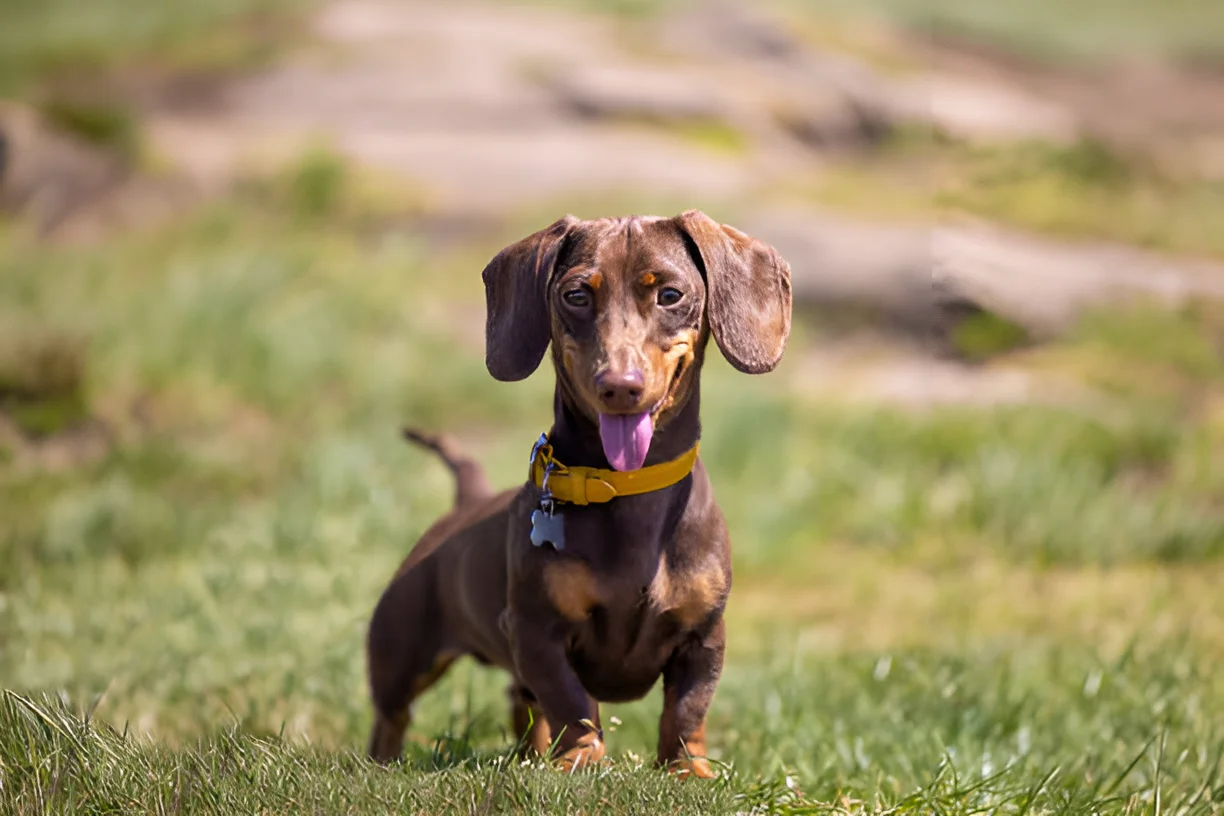Yes, Dachshunds can be bossy due to their strong-willed and independent nature, but with proper training and socialization, this behavior can be managed effectively. Dachshunds, with their distinctive long bodies and short legs, are a beloved breed known for their playful and affectionate nature. However, they also have a reputation for being bossy and stubborn. This comprehensive guide explores the reasons behind this behavior, how to manage it, and what makes Dachshunds such unique and charming companions.
Understanding Dachshund Behavior
Historical Background
Dachshunds were originally bred in Germany to hunt badgers and other burrowing animals. Their name literally means “badger dog” in German. This hunting background has endowed them with a fearless and determined personality, traits that can sometimes manifest as bossiness.
Personality Traits
Dachshunds are known for their intelligence, curiosity, and independence. They are loyal and form strong bonds with their families, but their independent streak can make them appear bossy. This behavior is often a result of their desire to be in control of their environment and interactions.
Why Are Dachshunds Bossy?
Independent Nature
Dachshunds have a strong sense of independence, which can sometimes translate into bossy behavior. They like to make their own decisions and can be quite stubborn when they want something. This independence is a double-edged sword; while it makes them confident and self-reliant, it can also lead to challenges in training and obedience.
Protective Instincts
Dachshunds are naturally protective of their families and territories. This protective instinct can make them assertive and sometimes bossy, especially when they perceive a threat. They are quick to alert their owners to any unusual activity, making them excellent watchdogs.
High Intelligence
Dachshunds are highly intelligent dogs, which means they can quickly learn and understand their surroundings. However, this intelligence also means they can be manipulative and try to assert dominance if they sense a lack of leadership from their owners.
Managing Bossy Behavior
Consistent Training
Consistency is key when training a Dachshund. Establish clear rules and boundaries from the beginning and stick to them. Use positive reinforcement techniques, such as treats and praise, to encourage good behavior. Avoid harsh punishment, as it can lead to fear and aggression.
Socialization
Early socialization is crucial for Dachshunds. Expose them to different people, animals, and environments to help them become well-rounded and less likely to exhibit bossy behavior. Socialization helps them learn how to interact appropriately with others and reduces anxiety and fear.
Leadership and Structure
Dachshunds need to know who is in charge. Establish yourself as the leader by being firm and consistent in your commands and expectations. Provide structure and routine to help them feel secure and understand their place in the family hierarchy.
Activities to Channel Their Energy
Mental Stimulation
Dachshunds thrive on mental stimulation. Provide them with puzzle toys, interactive games, and training sessions to keep their minds engaged. Mental stimulation can help reduce bossy behavior by giving them a positive outlet for their intelligence and energy.
Physical Exercise
Regular physical exercise is essential for Dachshunds. Daily walks, playtime, and activities like agility training can help burn off excess energy and reduce the likelihood of bossy behavior. A tired Dachshund is a well-behaved Dachshund.
Health Considerations
Common Health Issues
Dachshunds are prone to certain health issues, such as intervertebral disc disease (IVDD), obesity, and dental problems. Regular veterinary check-ups and a healthy diet are essential to keep them in good health. Addressing health issues promptly can also help reduce behavioral problems.
Diet and Nutrition
A balanced diet is crucial for maintaining a Dachshund’s health and energy levels. Overfeeding can lead to obesity, which can exacerbate health and behavioral issues. Consult your veterinarian for dietary recommendations and portion control.
Conclusion
Dachshunds can indeed be bossy, but this behavior is manageable with proper training, socialization, and leadership. Understanding their unique personality traits and providing them with the right environment and activities can help channel their energy positively. With patience and consistency, Dachshunds can be loving, loyal, and well-behaved companions.
The photo featured below the post headline is Credit: dapec/istockphoto
I hope you find this post helpful and informative. If Yes’ feel free to share it with your friends!
Frequently Asked Questions
Are Dachshunds bossy?
Yes, Dachshunds can be bossy due to their strong-willed and independent nature, but with proper training and socialization, this behavior can be managed effectively.
How can I manage my Dachshund’s bossy behavior?
Manage your Dachshund’s bossy behavior through consistent training, early socialization, and establishing yourself as the leader. Use positive reinforcement and provide mental and physical stimulation.
Why are Dachshunds so independent?
Dachshunds were bred for hunting, which required them to be independent and make decisions on their own. This trait has carried over into their modern behavior.
What activities can help reduce my Dachshund’s bossy behavior?
Activities that provide mental stimulation, such as puzzle toys and training sessions, and regular physical exercise, like daily walks and playtime, can help reduce bossy behavior.
Are Dachshunds good family pets?
Yes, Dachshunds are loyal and affectionate, making them great family pets. However, they require proper training and socialization to ensure they are well-behaved.

